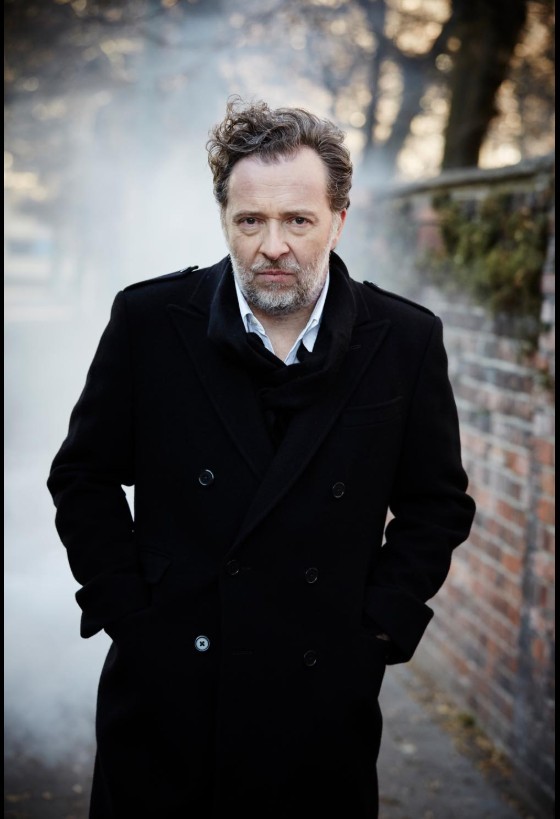 Set in 1962, when England was on the cusp of the Swinging Sixties, ‘On Chesil Beach’ by British author Ian McEwan examines the tension between the modern (represented by the male character Edward) and an earlier, more sexually repressed age (represented by Florence). This tension reaches its apotheosis in the shocking denouement of the novel, an act which represents the clash of earlier twentieth-century moral rectitude with the forward pull of the sexual revolution. Chesil Beach, a desolate, wind-blown ancient geological feature on the Dorset coast in the south-west of England, is the place where the couple go for their honeymoon.
Set in 1962, when England was on the cusp of the Swinging Sixties, ‘On Chesil Beach’ by British author Ian McEwan examines the tension between the modern (represented by the male character Edward) and an earlier, more sexually repressed age (represented by Florence). This tension reaches its apotheosis in the shocking denouement of the novel, an act which represents the clash of earlier twentieth-century moral rectitude with the forward pull of the sexual revolution. Chesil Beach, a desolate, wind-blown ancient geological feature on the Dorset coast in the south-west of England, is the place where the couple go for their honeymoon.
Like McEwan’s highly acclaimed book (and later film) ‘Atonement’, the tightly-constructed narrative unfolds with a creeping sense of foreboding. From the outset there is an underlying tension, while McEwan shapes his characters, their personalities, thoughts and tastes with an unerring eye for detail. The author places his characters in their historical setting, the early 1960s, with equal attention to detail, reminding us that this was the era of Harold Macmillan (British prime minister at the time), who haunts the narrative, and before The Beatles’ first LP was released. The obscenity trial concerning D H Lawrence’s ‘Lady Chatterley’s Lover’ had been settled, but the nation was still recovering from the restrictions, both physical and emotional, of the Second World War, which was still recent in the national memory. The tensions between the social mores and moral code of an earlier era and a younger generation craving sexual and moral freedom are explicit throughout the book.
Bach: Prelude from Partita for Violin No 3
Beethoven: String Quartet No 4 in C minor, Op 18, 1st movt
The references to music in the book are used to delineate the personality of Florence, an ambitious young violinist who studied at the Royal College of Music, and is a regular at London’s famous chamber music venue, the Wigmore Hall. While music is not a major strand in the book, it receives frequent mentions by the author as a way of defining Florence’s character, her seriousness and her commitment to her violin playing and the quartet of which she is a member. It also reveals the author’s own refined musical taste, with references to string quartets by Mozart, Beethoven, Schubert and Schumann, works for solo violin, and music by Frank Bridge and Benjamin Britten. In a literary master stroke, McEwan brilliantly captures the décor and special ambiance of the Wigmore Hall, particularly its unique audience, a description which is still relevant today (it is notable for its very serious and elderly audience), and offers the reader a glimpse into the British classical music world of the early 1960s when musicians and composers such as Peter Pears, Benjamin Britten, Jacqueline du Pré and John Ogdon were the musical superstars of the day.
Mozart: String Quintet in D major K593, 1st movt
Frank Bridge: Go Not Happy Day / Peter Pears & Benjamin Britten
“….the dark seriousness of the place, the faded peeling walls backstage, the gleaming woodwork and deep red carpet of the entrance hall, the auditorium like a gilded tunnel, the famous cupola over the stage depicting, so she was told, mankind’s hunger for the magnificent abstraction of music……She revered the ancient types, who took minutes to emerge from their taxis, the last of the Victorians, hobbling on their sticks to their seats, to listen in alert critical silence…”
On Chesil Beach, Ian McEwan. Vintage Books, 2007
The film of ‘On Chesil Beach’ was released in the UK in May 2018
More Reviews
-
 The Schubertiade July Performers Meet the star performers at Schubertiade 50th anniversary celebration
The Schubertiade July Performers Meet the star performers at Schubertiade 50th anniversary celebration - Schubertiade Hohenems 2025
Programme Highlights
Universal Embrace Discover the program featuring Schubert's Winterreise, Schumann's Dichterliebe - Itinéraire Baroque 2025
A Journey Through Time and Place A musical pilgrimage through forgotten Romanesque churches! -
 A Beautiful Thread: Celebrating Thomas Hardy’s Legacy in Words and Music Discover how excerpts from Hardy's novels combined with David Le Page's music
A Beautiful Thread: Celebrating Thomas Hardy’s Legacy in Words and Music Discover how excerpts from Hardy's novels combined with David Le Page's music


